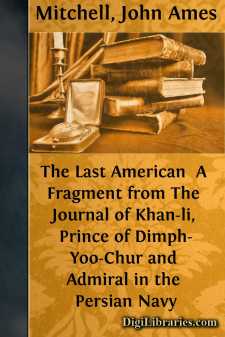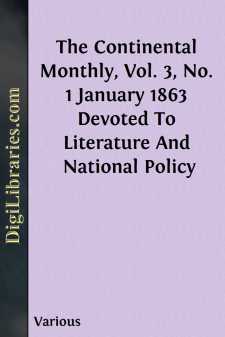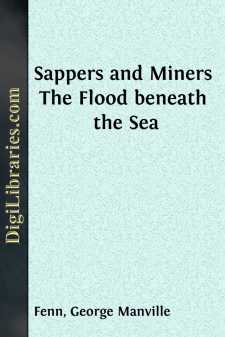Categories
- Antiques & Collectibles 13
- Architecture 36
- Art 48
- Bibles 22
- Biography & Autobiography 813
- Body, Mind & Spirit 142
- Business & Economics 28
- Children's Books 14
- Children's Fiction 11
- Computers 4
- Cooking 94
- Crafts & Hobbies 4
- Drama 346
- Education 46
- Family & Relationships 57
- Fiction 11829
- Games 19
- Gardening 17
- Health & Fitness 34
- History 1377
- House & Home 1
- Humor 147
- Juvenile Fiction 1873
- Juvenile Nonfiction 202
- Language Arts & Disciplines 88
- Law 16
- Literary Collections 686
- Literary Criticism 179
- Mathematics 13
- Medical 41
- Music 40
- Nature 179
- Non-Classifiable 1768
- Performing Arts 7
- Periodicals 1453
- Philosophy 64
- Photography 2
- Poetry 896
- Political Science 203
- Psychology 42
- Reference 154
- Religion 513
- Science 126
- Self-Help 84
- Social Science 81
- Sports & Recreation 34
- Study Aids 3
- Technology & Engineering 59
- Transportation 23
- Travel 463
- True Crime 29
Sort by:
Curator of the Imperial Museum at Shiraz.Author of "The Celestial Conquest of Kaly-phorn-ya,"and of "Northern Mehrika under the Hy-Bernyan Rulers" he astounding discoveries of Khan-li of Dimph-yoo-chur have thrown floods of light upon the domestic life of the Mehrikan people. He little realized when he landed upon that sleeping continent what a service he was about to render history, or...
more...
by:
Andre Norton
Under normal conditions a whole person has a decided advantage over a handicapped one. But out in deep space the normal may be reversed—for humans at any rate. Steena of the spaceways—that sounds just like a corny title for one of the Stellar-Vedo spreads. I ought to know, I’ve tried my hand at writing enough of them. Only this Steena was no glamour babe. She was as colorless as a Lunar...
more...
by:
Various
THE HUGUENOTS OF NEW ROCHELLE. It is worthy of record that Westchester County, New York, was settled by emigrants from New England and France, and both seeking homes from religious persecutions. As early as 1642, John Throcmorton, with thirty-five associates, made the first settlement in this section, with the approbation of the Dutch authorities. With Roger Williams, driven away from New England by...
more...
by:
Amy Bell Marlowe
CHAPTER ITHE GO-AHEAD CLUB “Oh, girls! such news!” cried Wynifred Mallory, banging open the door of Canoe Lodge, and bringing into the living room a big breath of the cool May air, which drew out of the open fireplace a sudden balloon of smoke, setting the other members of the Go-Ahead Club there assembled coughing. Grace Hedges, who was acting as fireman that week, turned an exasperated face, with...
more...
AN IMPORTANT TELEPHONE MESSAGE "There's the answer!" cried Tom. "It's as plain as day!" added Sam. "You are right," came from Dick. "I see it all now." He signed for the telegram and dismissed the boy, closing the door after him. "They are keeping father a prisoner somewhere, so that he cannot sign those documents." "And it means a big financial...
more...
by:
Joseph Addison
INTRODUCTION No character in our literature, not even Mr. Pickwick, has more endeared himself to successive generations of readers than Addison’s Sir Roger de Coverley: there are many figures in drama and fiction of whom we feel that they are in a way personal friends of our own, that once introduced to us they remain a permanent part of our little world. It is the abiding glory of Dickens, it is one...
more...
by:
Various
MODERN TYPES. (By Mr. Punch's own Type Writer.) No. XVI.—THE HURLINGHAM GIRL. It is not so easy as it might appear to define the Hurlingham Girl with complete accuracy. To say of her that she is one whose spirits are higher than her aspirations, would be true but inadequate. For, at the best, aspirations are etherial things, and those of the Hurlingham Girl, if they ever existed, have been so...
more...
INTRODUCTION. The money to found a British Museum was raised by a lottery in the middle of the last century. Sir Hans Sloane having offered his books and museum of natural history to Parliament, for less than half its value (20,000£.), it was purchased, together with the famous Harleian and Cottonian MSS., and deposited in Montague House, Bloomsbury, which had been bought of the Earl of Halifax, for...
more...
Bass for Breakfast. “Have some more bass, Gwyn?” “Please, father.” “You should not speak with your mouth full, my dear,” said Mrs Pendarve, quietly. “No, mother; but I didn’t like to keep father waiting.” “And between the two stools you came to the ground, eh?” said Colonel Pendarve, smiling. “Never mind; hold your plate. Lucky for us, my dear, that we have only one boy. This...
more...
"God, who at sundry times and in diverse manners spake in time past unto the fathers by the prophets, hath in these last days spoken unto us by His Son, whom He hath appointed heir of all things."—Heb. i, l, "Yes; so it was ere Jesus came— Alternate then His Altar flame Blazed up and died away, And Silence took her torn with Song, And Solitude with the fair...
more...











